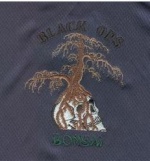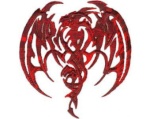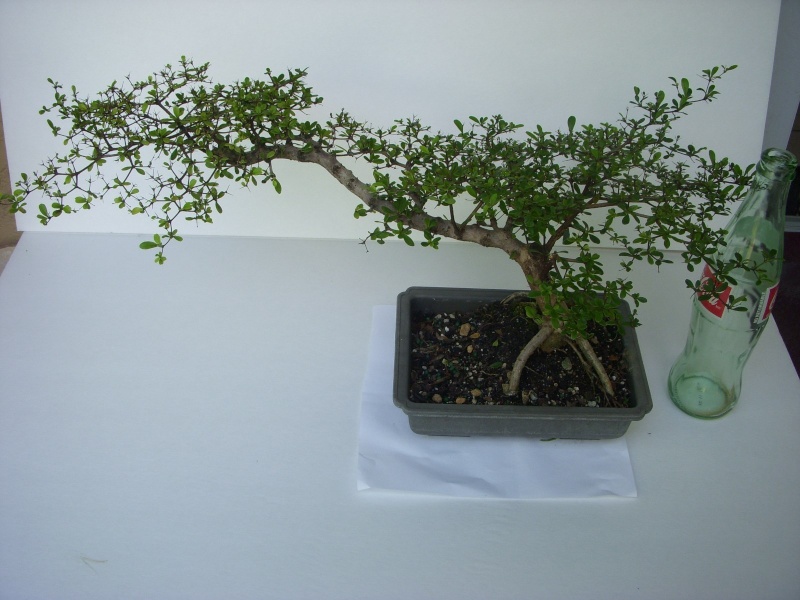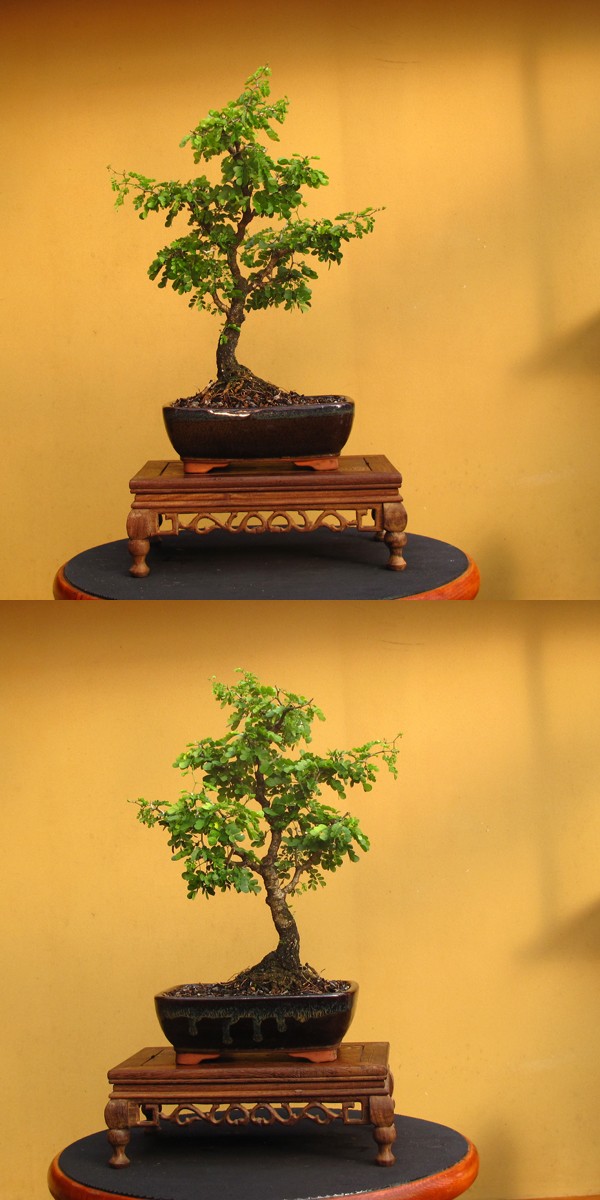Black Olive or Texas Ebony
+3
John Quinn
Auballagh
LittleJoe
7 posters
Page 1 of 1
 Re: Black Olive or Texas Ebony
Re: Black Olive or Texas Ebony
I would go with the Texas Ebony, and not because it is possibly the better tree. In my experience, I don't believe your single T5, 48" bulb (6700K?) will be strong enough to keep a Black Olive tree under for long, without problems developing. Black Olive's tend to get sooty mold, become rangy and loose shape pretty fast, when kept indoors under less than optimal, indoor lighting. By that, I mean providing Metal Halide powered levels of lighting, along with plenty of air movement.
The Texas Ebony should be a bit more forgiving, and will adapt better than a Black Olive will to the lower light conditions a single T5, 48" fluorescent bulb will provide for it indoors.
The Texas Ebony should be a bit more forgiving, and will adapt better than a Black Olive will to the lower light conditions a single T5, 48" fluorescent bulb will provide for it indoors.

Auballagh- Member
 Re: Black Olive or Texas Ebony
Re: Black Olive or Texas Ebony
Thank you for your reply Auballagh. That's a real shame as I prefer the Black Olive. Would it matter that it would also be sitting in a west facing window with a lot of indirect light. The T5 bulb is a 6400K, should I upgrade? I do want to do right by the tree's.Auballagh wrote:I would go with the Texas Ebony, and not because it is possibly the better tree. In my experience, I don't believe your single T5, 48" bulb (6700K?) will be strong enough to keep a Black Olive tree under for long, without problems developing. Black Olive's tend to get sooty mold, become rangy and loose shape pretty fast, when kept indoors under less than optimal, indoor lighting. By that, I mean providing Metal Halide powered levels of lighting, along with plenty of air movement.
The Texas Ebony should be a bit more forgiving, and will adapt better than a Black Olive will to the lower light conditions a single T5, 48" fluorescent bulb will provide for it indoors.
Thanks again!

LittleJoe- Member
 Re: Black Olive or Texas Ebony
Re: Black Olive or Texas Ebony
Well, as they say, "Your mileage may vary dependent on use and conditions where you live....".
With that, the supplemental, natural lighting provided by your west facing window might be enough to offset what may be lacking in your artificial lighting system. An hour or two of direct sunlight beaming in from that window right onto the tree would be best, but you've got to go with what you get, I suppose.
As for the bulb? 6700K is supposedly the absolute optimum spectrum lighting to provide plants in support of photosynthesis. But, last I checked those T5 bulbs weren't all that cheap, and if you just bought this 6400K bulb, it should work out okay. But, if the bulb you have is over a year old, I would definitely replace it with a new one. Degradation in power and intensity will happen fairly quickly for T5 fluorescent bulbs after 7 to 8 months of daily use.
And what the heck, those look like some pretty nice trees. Why not just get BOTH of them?
With that, the supplemental, natural lighting provided by your west facing window might be enough to offset what may be lacking in your artificial lighting system. An hour or two of direct sunlight beaming in from that window right onto the tree would be best, but you've got to go with what you get, I suppose.
As for the bulb? 6700K is supposedly the absolute optimum spectrum lighting to provide plants in support of photosynthesis. But, last I checked those T5 bulbs weren't all that cheap, and if you just bought this 6400K bulb, it should work out okay. But, if the bulb you have is over a year old, I would definitely replace it with a new one. Degradation in power and intensity will happen fairly quickly for T5 fluorescent bulbs after 7 to 8 months of daily use.
And what the heck, those look like some pretty nice trees. Why not just get BOTH of them?

Auballagh- Member
 Re: Black Olive or Texas Ebony
Re: Black Olive or Texas Ebony
The Texas Ebony is a nicer tree as it stands now. You will need to deal with the flying buttress roots on the Black Olive.

John Quinn- Member
 Re: Black Olive or Texas Ebony
Re: Black Olive or Texas Ebony
It's the roots that are drawing me to the Black Olive. I am a beginner, why would they be a problem?John Quinn wrote:The Texas Ebony is a nicer tree as it stands now. You will need to deal with the flying buttress roots on the Black Olive.

LittleJoe- Member
 Re: Black Olive or Texas Ebony
Re: Black Olive or Texas Ebony
I went ahead and purchased a 6700K, it wasn't to bad price wise. I only got the light a few weeks ago, but I want to do the best I can for the tree's. The original bulb will go in the closet as a spare. As to buying both. Did you really have to go there, now I'm thinking about itAuballagh wrote:
As for the bulb? 6700K is supposedly the absolute optimum spectrum lighting to provide plants in support of photosynthesis. But, last I checked those T5 bulbs weren't all that cheap, and if you just bought this 6400K bulb, it should work out okay. But, if the bulb you have is over a year old, I would definitely replace it with a new one. Degradation in power and intensity will happen fairly quickly for T5 fluorescent bulbs after 7 to 8 months of daily use.
And what the heck, those look like some pretty nice trees. Why not just get BOTH of them?

LittleJoe- Member
 Re: Black Olive or Texas Ebony
Re: Black Olive or Texas Ebony
They show no taper, They have no movement. They look like Props leaned against (or fastened on) the tree to hold it up.It's the roots that are drawing me to the Black Olive. I am a beginner, why would they be a problem?
Search for "exposed root" or "aerial root" here on the site and see other photos of trees with aerial roots and compare.

JimLewis- Member
 Re: Black Olive or Texas Ebony
Re: Black Olive or Texas Ebony
Thank you,JimLewis wrote:They show no taper, They have no movement. They look like Props leaned against (or fastened on) the tree to hold it up.It's the roots that are drawing me to the Black Olive. I am a beginner, why would they be a problem?
Search for "exposed root" or "aerial root" here on the site and see other photos of trees with aerial roots and compare.
The Black Olive is on E-bay, and I'm the only bidder so far. I guess I can only hope someone else bids. Doing more research, both of these tree's want full sun when out doors. The best I'm going to be able to do is just afternoon sun. I guess the search continues. Thinking maybe a Boxwood?
Anyways, thanks for all your replies. I like it when people make me think!

LittleJoe- Member
 Re: Black Olive or Texas Ebony
Re: Black Olive or Texas Ebony
Excellent advice. I have a couple of additional thoughts that would expand on this.Auballagh wrote:Well, as they say, "Your mileage may vary dependent on use and conditions where you live....".
With that, the supplemental, natural lighting provided by your west facing window might be enough to offset what may be lacking in your artificial lighting system. An hour or two of direct sunlight beaming in from that window right onto the tree would be best, but you've got to go with what you get, I suppose.
As for the bulb? 6700K is supposedly the absolute optimum spectrum lighting to provide plants in support of photosynthesis. But, last I checked those T5 bulbs weren't all that cheap, and if you just bought this 6400K bulb, it should work out okay. But, if the bulb you have is over a year old, I would definitely replace it with a new one. Degradation in power and intensity will happen fairly quickly for T5 fluorescent bulbs after 7 to 8 months of daily use.
And what the heck, those look like some pretty nice trees. Why not just get BOTH of them?
Both species, the black olive and the Texas ebony are plants that do best in full sun.
The glass of your west window blocks at least 50% of the sun's rays, being on the west you get less than 6 hours possible where direct sun could in theory hit the west window. So at best you are getting less than 25% of available sunlight through this window. Indirect light from the window is useful, but as said above, hard to estimate the actual amount your plants get that they can use. Consider buying or borrowing a light meter. (borrowing might be better, once you figure out your solution, you won't need it). I grow a lot of orchids and trees under lights. Outdoors ful sun is some number larger than 4000 foot candles of light. From experience I know I can grow higher light orchids and trees like Pomegranate and Leucanea (acacia relative) and Diospyros texana in about 2500 foot candles of light. Ficus are shade tolerant and can be grow well in my light garden in about 1400 foot candles of light with a 18 hour day length. I use the foot candle measurements because I am an old timer, I forget the conversion to Lumens and lux and microSeimens which are the current accepted units of measurement.
An 4 tube 48 inch T-12 shop light fixture will give you only 1100 foot candles at 8 inches from the tubes. I currently am using 8 tube T-5 fixtures to replace my 400 watt HPS (Sun Agro High Pressure Sodium) lamps, and the 8 tube, 48 inch T-5 seems to have a very similar light output compared to the 400 watt HPS. At roughly 36 inches away, directly beneath the lamps I am getting roughly 2400 foot candles. It is clear, that as a supplement a single 48 inch T5, no matter what the K temp is not going to provide the supplement to total up to 'full sun'.
There are very attractive 4 tube reflectors, for T5 systems, and I feel as a supplement 4 tube, 48 inch T5 would be the minimum I would use to supplement the light from a west or a north window. I currently really like the Sun Blaze brand of reflector, it is very efficient, and reasonably attractive for use in a living space.
There is such a thing as 'close enough', you don't need to exactly approximate full sun to get 'good enough' results. To some extent, you can make up for lower light intensity by extending your day length, but this has a limit, and that is up to about 18 hours a day. Unv. of Wisc. Forest Products Lab, published a paper on pine seedling production for reforestation. Increased day length, even at lower intensities had a benefit to growth, up to 18 hours a day. Beyond 18 hours there was a slight retardation of growth. Result was lights on more than 18 hours was a waste of electricity and money.
About lamp color. In my 20+ years of experience growing under lights I have found that you can get good growth from HPS, MH, and T-5 lamps anywhere in the color temperature range from 5500 K through 7200 K, but it is true that 6700K is ideal. I am currently using 6400K and the quality of light is excellent, close enough. I would not expect any observable difference in your conditions between using 6400 vs 6700 K lamps. They are fairly close to each other in output.
Summary:
First, get an actual measurement of how much light you really are getting at that window. This is the quickest way sort out whether or not you have enough light. Anything else will be trial and error, which in the long run can become much more expensive.
If the light meter supports my assumption that your window is not allowing in enough light, then you need to increase your supplemental light, by switching to the appropriate number of lamps in a fixture (most likely 4 or 8 tube 48 inch T-5)
If it is not possible to go to a higher light supplement, then switch to growing lower light demanding species, such as Ficus.
You could try by trial and error, especially if you already won your EBay purchase. But the above might save you money in the long run.

Leo Schordje- Member
 Re: Black Olive or Texas Ebony
Re: Black Olive or Texas Ebony
Leo,
That was a very good read and great information. Thank you. I have a lot to consider.
That was a very good read and great information. Thank you. I have a lot to consider.

LittleJoe- Member
 Similar topics
Similar topics» Texas Ebony (Future styling suggestions?)
» Texas Ebony from Seed
» repotting texas ebony
» texas ebony
» A few issues with a Texas Ebony
» Texas Ebony from Seed
» repotting texas ebony
» texas ebony
» A few issues with a Texas Ebony
Page 1 of 1
Permissions in this forum:
You cannot reply to topics in this forum









